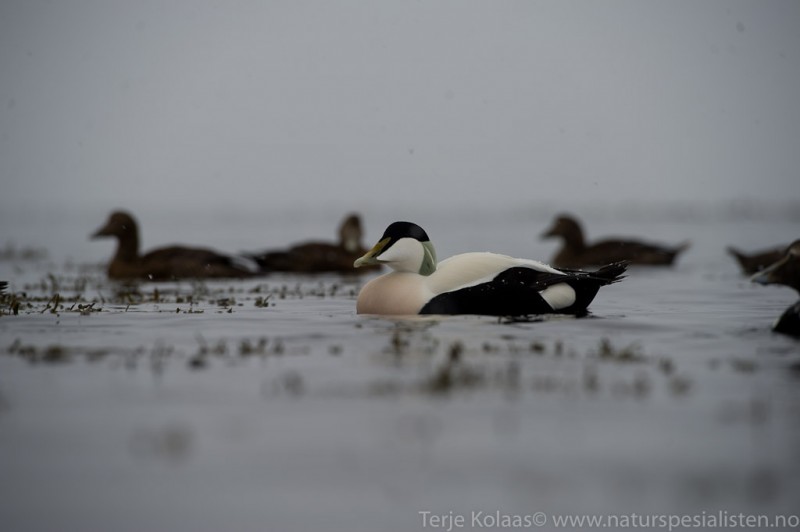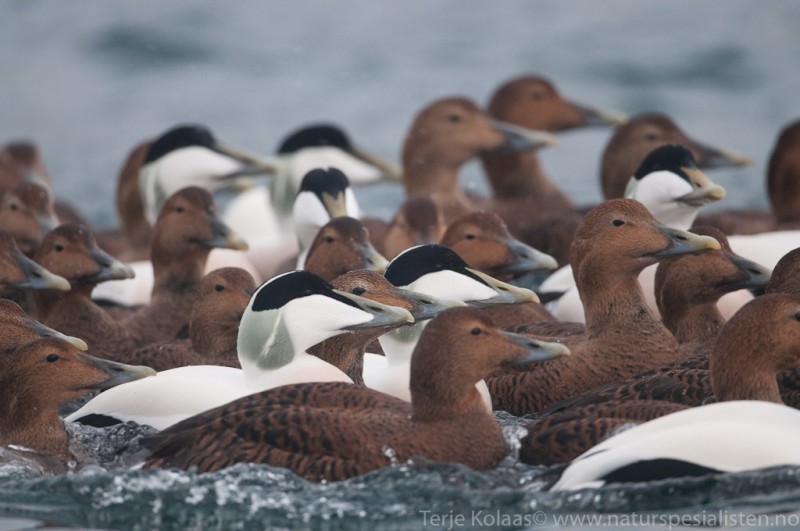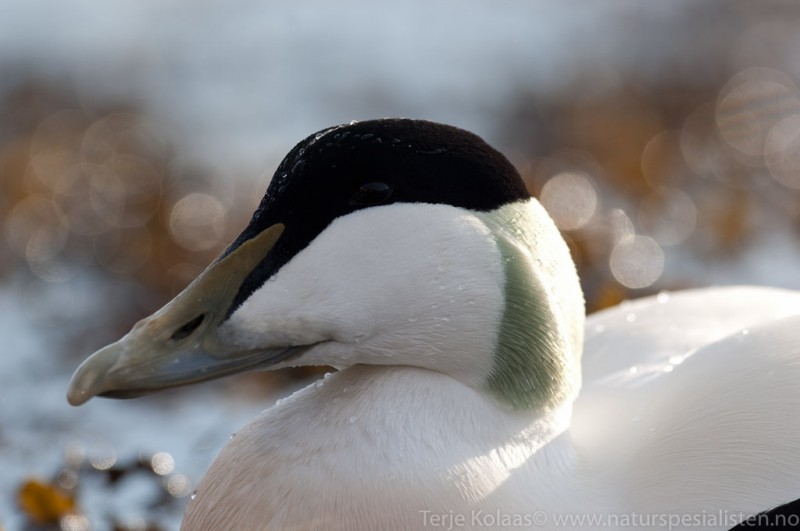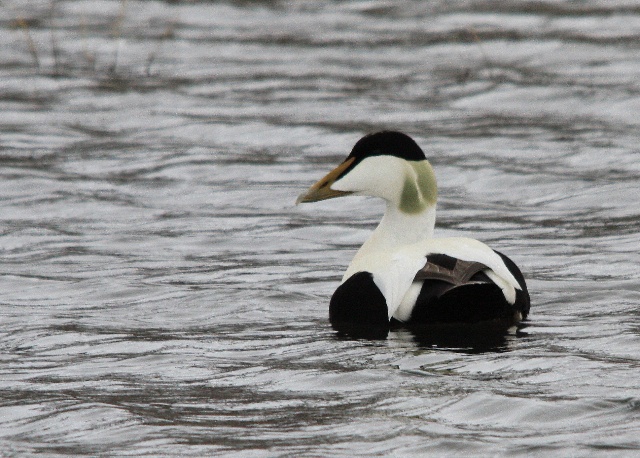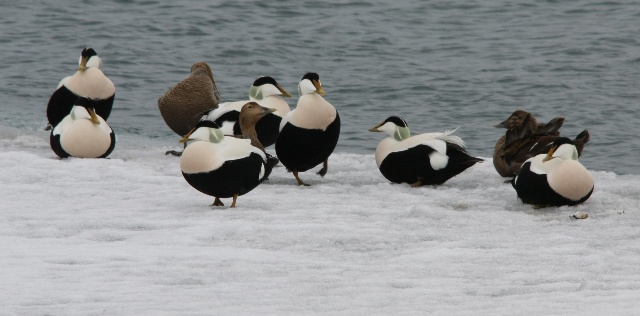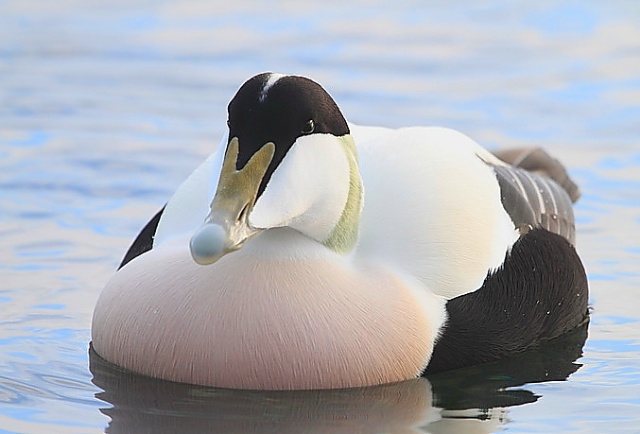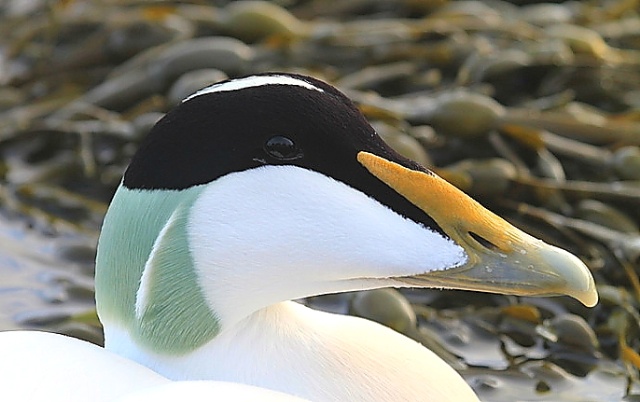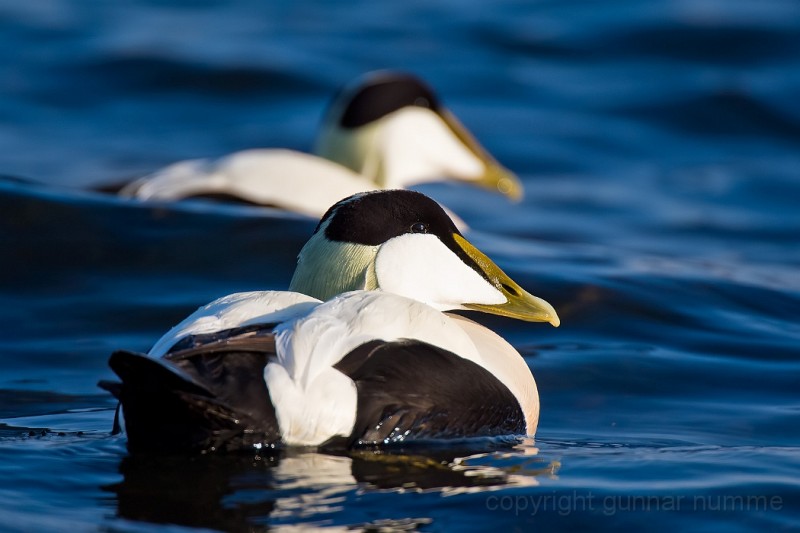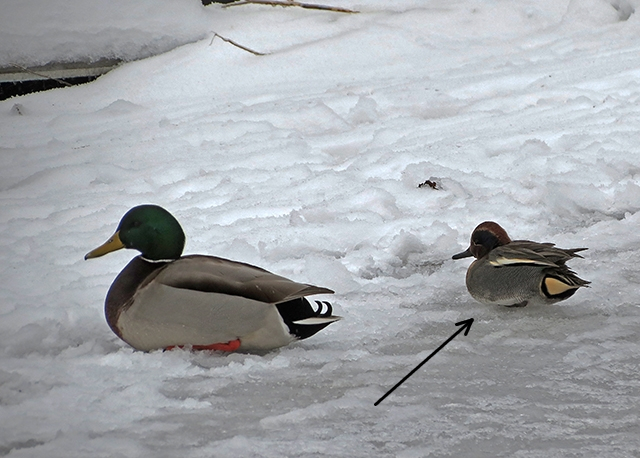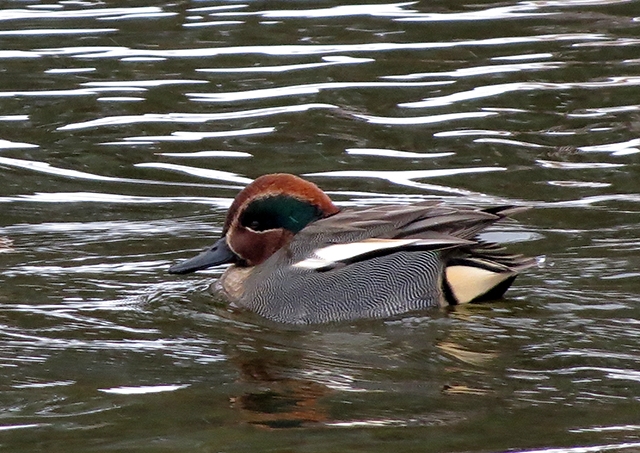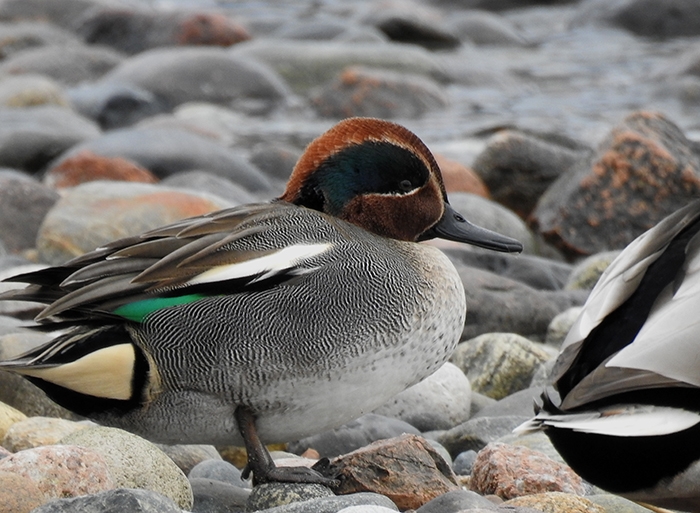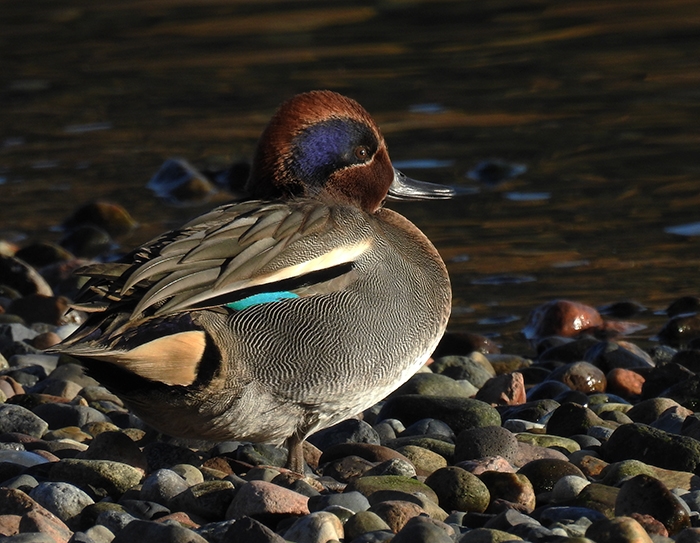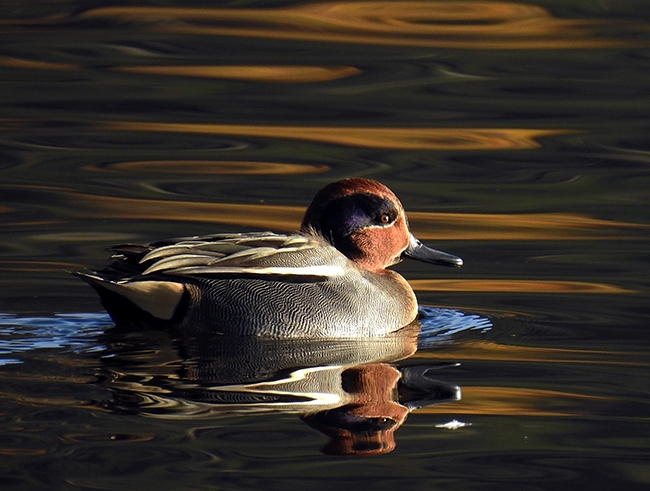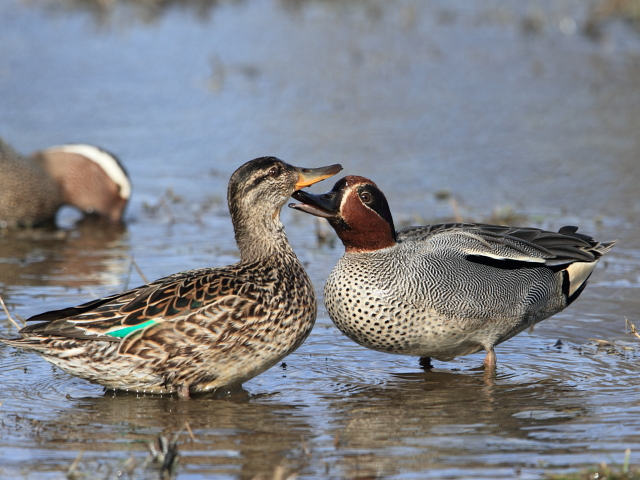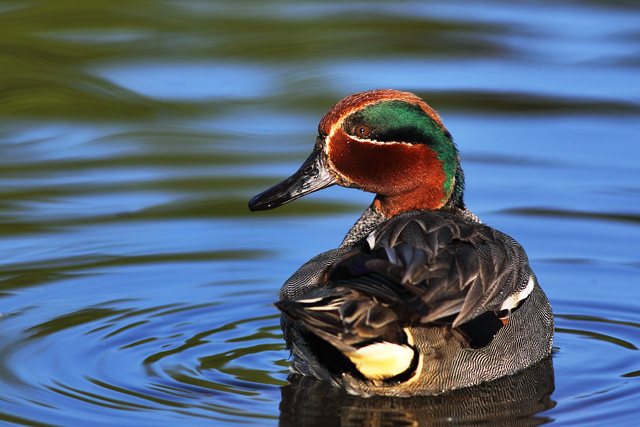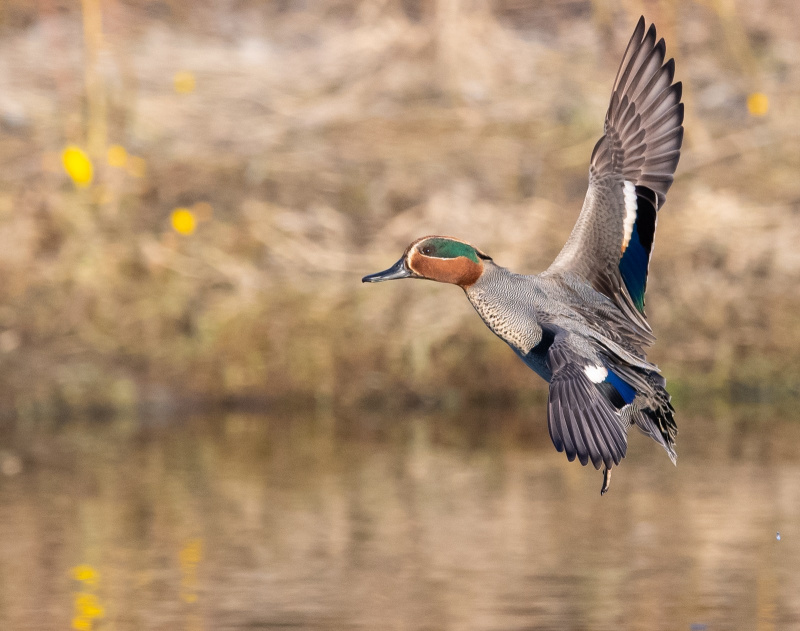Eider (Somateria mollissima)
Teal (Anas crecca)
Large diving duck with elongated, triangular head profile and short neck. Male: white upperparts and black belly, black cap and two light green patches at back of head. Females are mostly barred in brown. Differs from King Eider by extended feathering on light tipped bill, triangular head profile with less steep forehead and lack of v-barred flanks. Flying birds gives a more elongated impression than King Eiders.
Sound:Males call a typical, pleasant, clear, 2-3 second long "aaaooooooh". Starting on a low note, slowly ascending and ending on a descending note. Usually accompanied by the female "ga ga ga ga".
Display-call:
Distribution:
Wikipedia: map (se also Xeno-canto below)
Ecology:Birdlife ecology
Links:
Observation.org Latest observations
Image search Flickr NB! May give other species
CCCC-photo:Paul Williams www.IronAmmonitePhotography.com, Licence,Link.
Sounds:Recorded by Stein Ø. Nilsen,http://www.xeno-canto.org ,CC license
Smallest dabbling duck. Agile, with quick and easy take-off. Male with brown and green head with yellow stripes, grey body with a white horizontal stripe, and a yellow patch by the tail. Female is mostly brown with slim bill with orange base and no cheek stripe (see Garganey). Both sexes with green speculum with broad, wedge-shaped, white front edge, and dark primaries clearly visible in flight. Easy and quick take-off from both water and land, with rapid and changing flight.
Sound:Male: characteristic, short, highly resonant and metallic "plytt". A bit similar to Pintail, but higher pitched and lacking accompanying whistling sound. Female: various quacking sounds generally quicker paced, more nasal and noticeably higher pitched than Mallard.
Male:
Distribution:
Wikipedia: map (se also Xeno-canto below)
Ecology:Birdlife ecology
Links:
Observation.org Latest observations
Image search Flickr NB! May give other species
CCCC-photo:Koshyk, Licence,Link,
Sounds:Recorded by Bernard Bousquet,http://www.xeno-canto.org ,CC license

 English
English Albanian
Albanian
 Armenian
Armenian
 Bulgarian
Bulgarian
 Catalan
Catalan
 Croatian
Croatian
 Czech
Czech
 Danish
Danish
 Dutch
Dutch
 Finnish
Finnish
 French
French
 Georgian
Georgian
 German
German
 Greek
Greek
 Hungarian
Hungarian
 Italian
Italian
 Latvian
Latvian
 Lithuanian
Lithuanian
 Macedonian
Macedonian
 Norwegian
Norwegian
 Polish
Polish
 Portuguese
Portuguese
 Romanian
Romanian
 Russian
Russian
 Sami : Lule sami
Sami : Lule sami
 Sami : North sami
Sami : North sami
 Sami : South sami
Sami : South sami
 Scientific names
Scientific names
 Serbian
Serbian
 Spanish
Spanish
 Swedish
Swedish
 Ukrainian
Ukrainian

